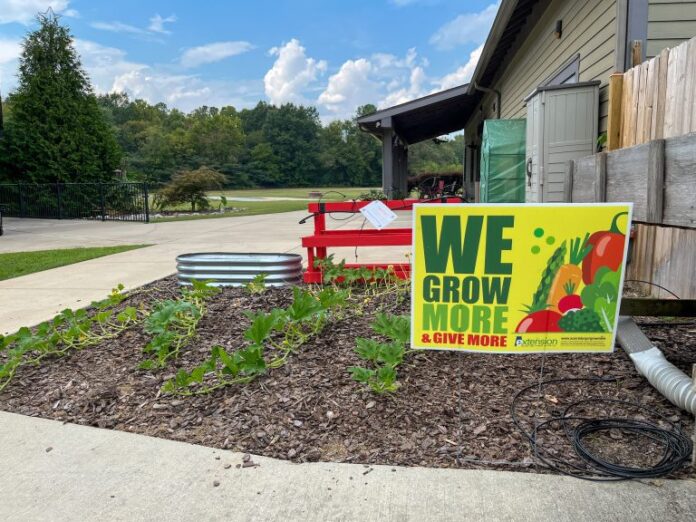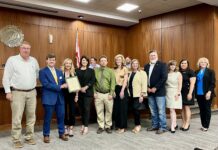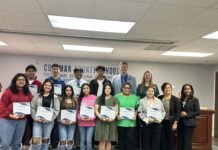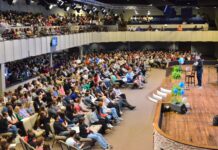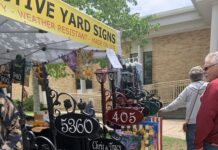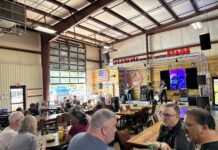AUBURN UNIVERSITY, Ala. — The Grow More, Give More (GMGM) project is changing the lives of Alabama senior citizens one container garden at a time. Since 2020, the GMGM project — led by the Alabama Cooperative Extension System home grounds, gardens and home pests team — has provided both nourishment and opportunity for Alabamians.
Pop-up gardens
Bethany O’Rear, GMGM project coordinator, said the original intent of the project was to share produce with neighbors in need. In 2023, there was a concerted effort to focus on serving senior citizens in Alabama’s food deserts.
“Container gardens are great for senior citizens, because they are smaller in size and easier to care for, especially for those who may have some physical challenges,” O’Rear said. “That was the motivation for installing these pop-up gardens at senior centers.”
A recent retiree and transplant to Alabama, Larry Kronk discovered the Alabaster Senior Center when he moved to town in 2022. Through this community center, he found Alabama Extension and the Extension Master Gardener (EMG) program.
“My wife and I moved to Alabama about 14 months ago,” Kronk said. “We discovered the senior center first. They found out I had a garden and had a hydroponic system they wanted to set up and chose me to do it.”
Kronk said his involvement with the senior center led him to the EMG program. This, in turn, put him on the path to volunteerism through the GMGM project.
Making a difference
The senior center pop-up garden requires one to two hours of time each day — including weekends.
“I’ve enjoyed gardening with the folks here, especially, because they are inquisitive,” he said. “They give me ideas on what to do next, as far as what to grow. They really enjoy the vegetables.”
Kronk is proud of what the Alabaster Senior Center’s garden has been able to do this year. The GMGM pop-up garden produced approximately 75 pounds of produce in its first year.
The pop-up gardens include planting buckets, grow bags, irrigation drip kits and the necessary seed or soil. Regional Extension agents deliver these kits to their destinations. O’Rear said the gardens were portable by design and made on a scale to encourage similar efforts by senior citizens at home.
“The thought is that participating seniors may not plant eight buckets like the pop-up garden, but they may be willing to try two buckets at home,” O’Rear said. “These gardens are an opportunity for them to learn and hopefully encourage them to try gardening at home as well.”
Changing lives
Kronk said the EMG program has affected him in a number of ways.
“It has given me a meaningful way to provide volunteer time,” Kronk said. “It has also allowed me to correct a lot of mistakes I’ve made in my own garden. I’m gaining a wealth of knowledge, and I am able to put it into action here more than ever.”
Kronk also said many of the senior center’s frequent visitors have expressed interest in taking home cuttings of roses, bushes and other plants on the property. He is working with the senior center and other volunteers to make those cuttings available, alongside the seasonal produce grown on-site.
O’Rear said the volunteers like Kronk in communities across the state have made pop-up gardens successful.
“The real heroes of this project are the community partners and Extension Master Gardener volunteers who have worked tirelessly on these gardens from the very beginning, ensuring success, harvest after harvest,” she said. “We are so grateful for all they have done.”
Discover Alabama Extension
Providing nutritious food for Alabama’s senior citizens through the Grow More, Give More project is just one of the many ways Alabama Extension delivers solutions for life’s everyday challenges. Extension educators are strong community partners, bringing practical ways to support homes, farms, people and communities.

